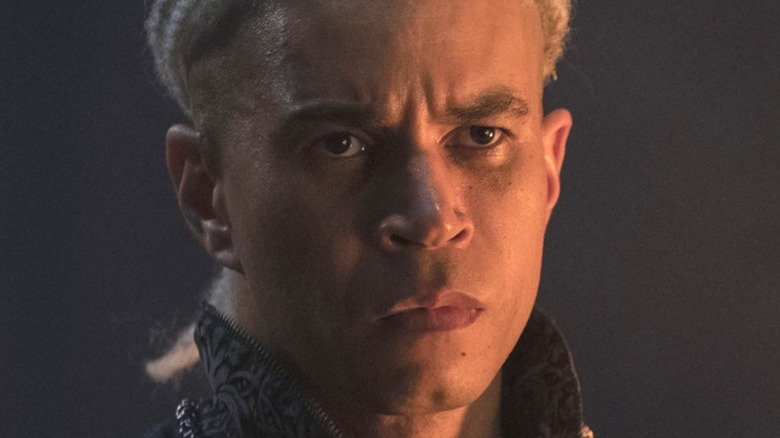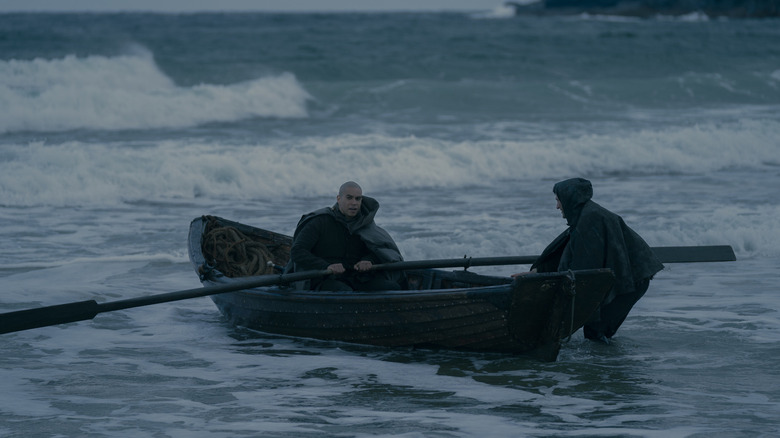House Of The Dragon Episode 7 Finally Bucks A Toxic Trope With Major Change To GRRM's Canon
This article contains spoilers for "House of the Dragon" Season 1, Episode 7 — "Driftmark"
The "Game of Thrones" Targaryen-led prequel "House of the Dragon" had colossal shoes to fill to win back fans of Westeros. After a disappointing conclusion for "Game of Thrones," the fiery new series made several changes from the original source material that even "A Song of Ice and Fire" creator George R.R. Martin approves of. Some were welcome improvements while some were early indicators of issues in representation — or so we may have thought.
In Episode 5, "We Light the Way," Criston Cole (Fabien Frankel) has an explosive public outburst with Ser Joffrey Lonmouth (Solly McLeod) that greatly differs from the events in the book "Fire & Blood." In Martin's version, Lonmouth dies from his injuries at the hands of Cole in a tournament, whereas in the show, he graphically pummels his face in at Rhaenyra Targaryen (Emma D'Arcy) and Laenor Velaryon's (John MacMillan) wedding. This change characterizes "House of the Dragon's" Cole as jealous and vindictive rather than knightly.
As GQ points out, this change also has consequences regarding diversity where, in the medieval world, queer characters are extremely hard to come by already: "To introduce a rare couple of queers to the series, only for one of them to be dispatched, quickly, in visceral fashion, leaves an awful taste." In Episode 7, we witness another change that manages to divert from the toxic trope.
House of the Dragon redeemed Rhaenyra in a huge way with Episode 7
In "Fire & Blood," after an increasing amount of questioning surrounding the true parentage of Rhaenyra and Laenor's children, her arranged husband is suspiciously murdered by Ser Qarl Correy (via Westeros.org). Like "House of the Dragon," this execution involves Daemon Targaryen (Matt Smith) who possibly conspires to have Laenor killed so he and Rhaenyra can finally marry. This level of conspiracy bleeds the truest essence of "Game of Thrones" with castle intrigue and deep betrayal always present in Westeros.
In "House of the Dragon" Episode 7, the final minutes take an unexpected turn when Laenor is actually revealed to still be alive. Instead, left in his place in Castle Driftmark, is a nameless guard body-doubling as his charcoaled corpse. Laenor then flees to Essos with Qarl Correy (Arty Froushan), a knight of House Velaryon, who has grown quite fond of the dragon-riding prince. This also redeems the scheming Targaryens who are seemingly more compassionate than their bloodthirsty "Fire & Blood" counterparts.
This change brings an optimistic promise of diversity and inclusion to this new iteration of Westeros. The creators and crew of "House of the Dragon" were conscious of this weakness in the original series and even sought to bring more inclusion into the prequel. The aversion of tragedy for these queer characters is a promising sign that saved Laenor from an undeserved fate and possibly sets him up for an unexpected return in the future.

